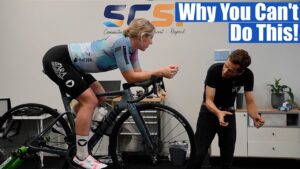Recover Faster With These Nutrition Tips with Road Cycling Academy
Source: Road Cycling Academy Youtube Channel: Recover Faster With These Nutrition Tips
Video Recover Faster With These Nutrition Tips with Road Cycling Academy
Video Recover Faster With These Nutrition Tips with Road Cycling Academy YouTube Channel.
Recover Faster With These Nutrition Tips
**Heading 1: Understanding the Importance of Post-Training Nutrition**
When it comes to road cycling, recovery and nutrition are key factors in optimizing performance. The body undergoes significant stress during training sessions, and proper nutrition is essential for replenishing energy stores, repairing muscle tissue, and supporting overall recovery. In this article, we will delve into the science of post-training nutrition and recovery, exploring the factors that influence the timing and composition of recovery meals and snacks.
**Subheading 1: The Recovery Time Frame**
The timing of the next training session plays a crucial role in determining the recovery time frame. If the next session is within 12 hours, the recovery window becomes particularly important. Within this period, the body needs to replenish glycogen stores, repair muscle tissue, and rehydrate effectively. For morning sessions followed by an afternoon session, the 30-minute post-training window becomes a critical time for nutrient intake.
**Subheading 2: The Three R’s of Recovery**
Rehydrate, refuel, rebuild – these are the three key elements of post-training recovery meals. Rehydration involves consuming fluids to replenish lost sweat and maintain optimal hydration levels. This is especially important for cyclists who engage in multiple training sessions throughout the day. Refueling focuses on replenishing glycogen stores with adequate carbohydrate intake, while rebuilding involves consuming protein to support muscle repair and growth.
**Subheading 3: The Importance of Protein and Carbohydrates**
The priority of protein versus carbohydrates in recovery nutrition depends on the timing of the next training session. If the next session is within 24 hours, protein becomes the priority. However, for sessions within 8 to 12 hours, carbohydrates take precedence to ensure optimal glycogen replenishment. Balancing protein and carbohydrate intake based on the timing of the next session is crucial for maximizing performance and recovery.
**Subheading 4: Ideal Post-Training Meal Options**
After a morning cycling session, a well-rounded recovery meal might include eggs, toast, avocado, and a protein-rich coffee. This combination provides a balance of protein, carbohydrates, and healthy fats to support recovery and energy replenishment. Other options such as yogurt with muesli and fruit or a protein smoothie with added chia seeds offer convenient and wholesome choices for post-training nutrition.
**Subheading 5: Choosing the Right Protein Source**
When it comes to protein supplementation, athletes can choose from a variety of options, including whey, casein, and plant-based proteins. Whey protein isolate offers a high protein content and rapid absorption, making it ideal for immediate post-training consumption. For those with dairy allergies or preferences, plant-based protein blends, which combine different plant-based sources, provide a complete amino acid profile for effective muscle recovery.
**Subheading 6: Amino Acid Blends for Optimal Recovery**
Amino acids are the building blocks of protein, playing a critical role in muscle repair and growth. Essential amino acids, including leucine, are particularly important for post-training recovery. Amino acid blends, whether from whey protein or plant-based sources, ensure that the body receives all essential amino acids required for effective muscle recovery and adaptation.
In conclusion, post-training nutrition and recovery play a significant role in optimizing road cycling performance. Understanding the timing and composition of recovery meals, prioritizing protein and carbohydrates based on training sessions, and choosing the right protein sources and amino acid blends are essential steps in supporting effective recovery and long-term performance gains for road cyclists. By implementing these strategies, cyclists can maximize their training adaptations, enhance recovery, and ultimately improve their on-bike performance.
The opinions expressed in this space are the sole responsibility of the YouTube Channel Road Cycling Academy and do not necessarily represent the views of CicloNews.










